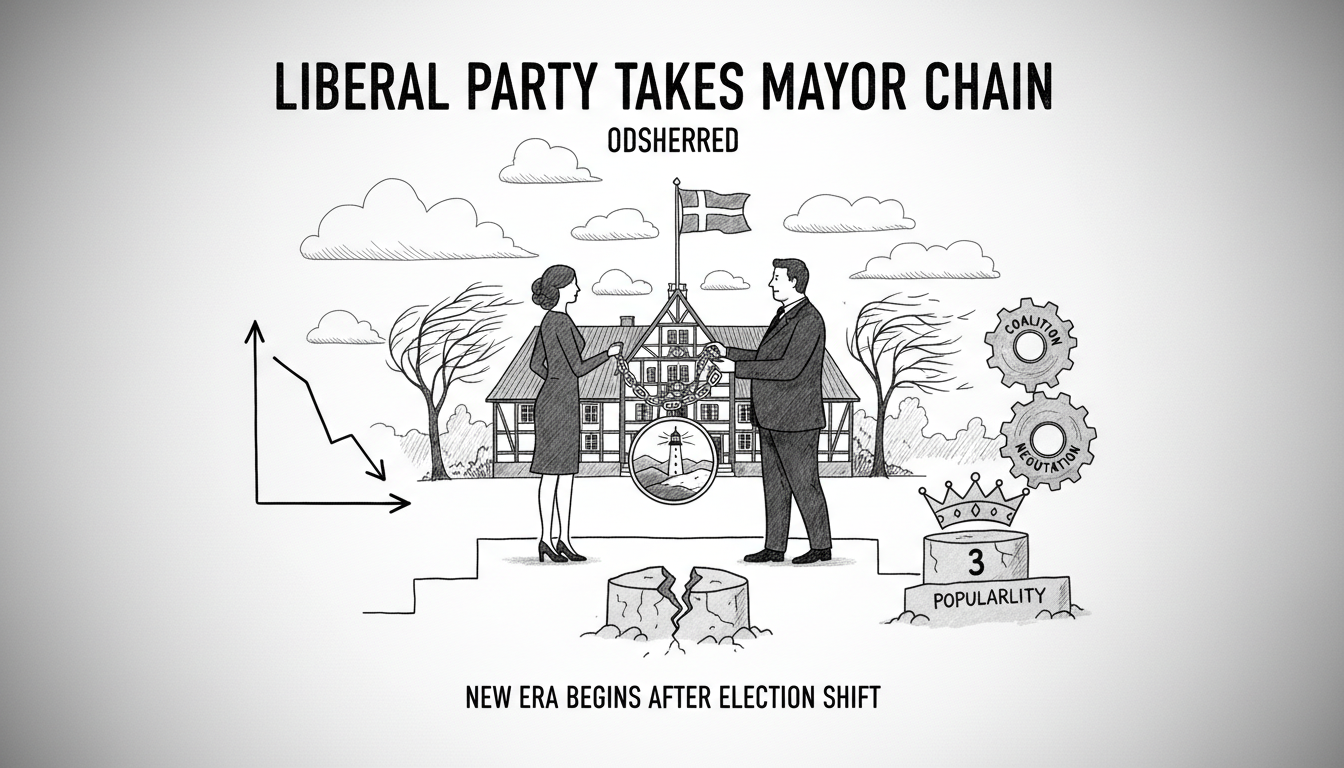Hanne Pigonska from the Liberal Party has become the new mayor of Odsherred Municipality in Denmark. She takes over from Karina Vincentz from Nyt Odsherred, who was the country's only mayor from a local list before the election.
The newly elected mayor confirmed that only the Danish People's Party has not signed the new political agreement. She expressed hope they would join soon. All other parties have committed to the new coalition arrangement.
Pigonska stated in a public announcement that the Danish People's Party needs additional time for internal discussion. They participated in all negotiation phases but lack immediate decision-making authority. The new mayor expects their final answer within days.
This political shift represents a notable change in Danish local governance. Local lists typically maintain strong community connections but often struggle against established national parties. Odsherred's transition signals potential realignment in municipal politics across Denmark.
The change follows a heated election period dominated by a district heating controversy. Residents dubbed the situation the 'fjernvarmeskandalen' or district heating scandal. While direct electoral impact remains unclear, the issue clearly influenced voter behavior.
Nyt Odsherred lost one council seat in the recent vote. The Social Democrats experienced more substantial losses, seeing their representation halved to five seats. Even the victorious Liberal Party faced decline, dropping from four to just two council seats.
Hanne Pigonska's personal vote count reveals an interesting dynamic. She received only 316 personal votes, ranking eighth in the municipality. Both her predecessor and leading candidates from other parties attracted more direct voter support.
Her success demonstrates that Danish local politics prioritizes coalition-building over personal popularity. The ability to assemble majority support matters more than individual vote counts in mayor selection processes.
The current agreement remains non-binding until formal ratification. Council members will meet between December 1 and 15 for the official mayor vote. This provides time for potential political maneuvering before final confirmation.
Odsherred's political landscape reflects broader Danish municipal trends. National parties increasingly challenge local lists even in traditionally independent-minded communities. The district heating controversy likely accelerated this shift by undermining trust in incumbent leadership.
International observers should note Denmark's proportional representation system enables such political transitions. Minority parties can gain influence through strategic alliances rather than outright electoral victory. This creates dynamic local governments responsive to changing public sentiment.
The new administration faces immediate challenges beyond political consolidation. Resolving the district heating issues remains urgent for maintaining public trust. Balancing environmental concerns with practical infrastructure needs will test the coalition's effectiveness.
Local government transitions in Denmark typically proceed smoothly despite political differences. The country's consensus-oriented political culture generally prevents the gridlock common in other systems. This stability benefits both residents and international investors monitoring Danish municipal developments.

